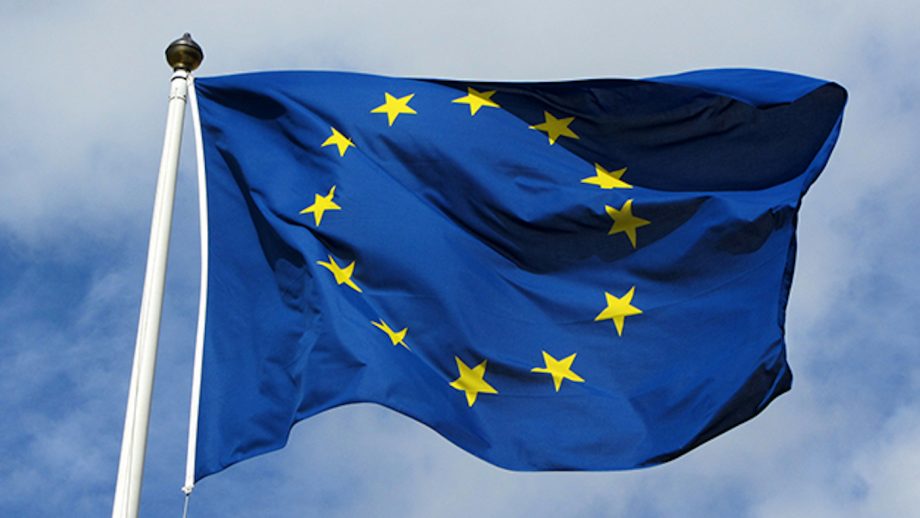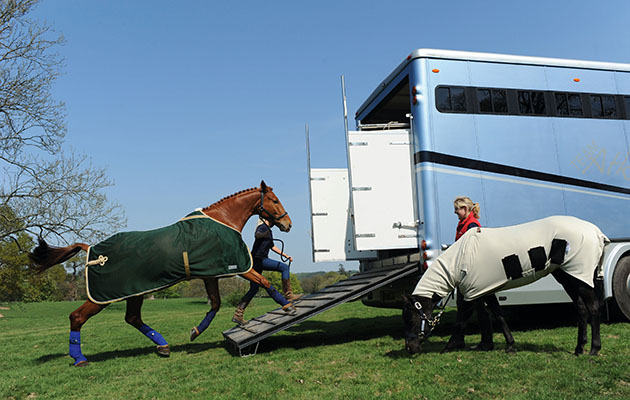British equestrian businesses have had to deal with a variety of extra issues since the end of the Brexit transition period. H&H speaks to traders and their association to find out more
RED tape is causing a headache for British equestrian businesses and customers negotiating the post-Brexit landscape, while hopes abound the situation will improve before long.
Traders have told H&H that on the whole business has been strong in the equestrian sector despite the challenges Covid and Brexit have posed, but new paperwork, taxes and confusion surrounding Britain’s trade deal with the EU are causing trouble.
“The problem is, people tried to get prepared, but they didn’t know what they were preparing for and that is what has made this so much more challenging,” British Equestrian Trade Association (BETA) executive director Claire Williams told H&H, adding that this is also all new to customs agents and couriers.
“It is causing quite a few hiccups, but I’m hoping it is just going to be a temporary blip.”
She said some businesses tried to get ahead with shipments before the end of the transition period, but French border issues in December as a result of Covid caused additional problems.
On top of that, officials at the French border are now reported to be being particularly precise, the new paperwork and rules of origin requirements are not easy to understand and are meticulous in requiring net weights and origin details for each item, while others have been caught out on the rules over animal products for substances such as collagen or glucosamine in vitamins and supplements.
While there are no new tariffs for products manufactured within the UK or the EU, one of the sticking points, however, is when products are made outside of that. This means UK customers may also find they have additional charges to pay when ordering from an EU-based business.
“One issue we have is a lot of goods we buy for horses, particularly the textiles, so rugs, clothing or footwear, are made outside Europe, meaning they are subject to tariffs coming in,” said Ms Williams, explaining that as Brexit means the UK is now a “third country”, more tariffs then apply again when these products are then traded with the EU.
“[The new requirements] impact our members as they are being asked to do things they’ve not done before. Members have had shipments get across the Channel and are then turned back, but they aren’t always told why.”
Ms Williams added that Brexit is not the only issue affecting shipping and supply, but the factors are all interlinked and the result is that shipping costs have increased hugely over the past 12 months.
Extra requirements
Brands also have the additional requirements of investing in the UKCA mark for goods such as protective equipment, which were previously covered by the CE mark.
Simon Middleton, managing director of Zebra Products, the sole UK distributor for a number of leading European brands, told H&H the company bought three- to four-months’ worth of extra stock ahead of the end of the transition period to prepare for any disruption.
“We were hoping for the best and preparing for the worst,” said Mr Middleton, adding that the business has had delays in deliveries arriving this week.
“We haven’t seen massive changes, but we are importers rather than exporters. I think we have been lucky that we took in a lot of extra stock. The UK is an important market, especially the equestrian side, a lot of European products are sold and the European suppliers want to do what they can to make it work.”
The company has kept distribution in Northern Ireland, as well as Britain, but made the decision to let go of some clients in the Republic of Ireland as it no longer made sense for products to come from the EU to the UK, to go back to the EU. It has also appointed someone to manage Brexit in the company and taken on a customs agent.
Ashley Gaynon, director of online and Cheshire-based equestrian retail store Equiport, told H&H the situation is challenging but stressed there will be a way forward and there is not an issue for their British-based and non-EU customers.
He said they stocked up before Christmas, so the five-day delays on imports at the moment are not a major problem.
But exporting to the EU is proving more difficult in the same way it is for the wider retail sector. Certain couriers have suspended service in the EU and Ireland, so a significant number of orders have been delayed or are stuck, other customers are finding they have taxes to pay on certain items, which he says is very confusing for them, and the paperwork is “mind-boggling”.
“Generally trading is good. Online is up year-on-year and still growing and I think the equestrian trade is doing well, considering,” he said, adding that he is hoping the Brexit confusion will become clearer in the coming weeks. “It is very difficult and it has to get better as it’s not just the equestrian trade, it’s every trade.”
Next week: horse travel, sales and tax: finding clarity in confusion over what new costs the equestrian world faces in a post-Brexit world
You might also be interested in…

Work ongoing to clarify post-Brexit horse movement *H&H Plus*

Equestrians advised not to move horses between Britain and EU at start of 2021
The group leading racing’s Brexit preparations has advised the industry not to move horses to and from the EU ‘unless

Step forward to secure international equine travel after Brexit: warning failure could cost ‘billions’ *H&H Plus*
A step forward has been taken to help secure the seamless travel of horses between Britain and EU member states

‘Digital passports’ cited as future in post-Brexit international equine travel
A ‘digital passport’ for horses has been put forward as a solution to help smooth cross-border travel continue for competition,

Be prepared: government issues guidance on horse movement after Brexit
The guidance will apply in the event of a no-deal Brexit


